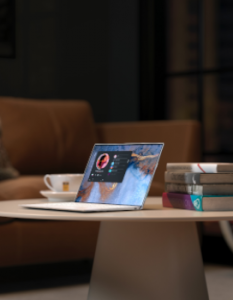On 6 February 2023, an amendment to the Labour Code regarding remote work and sobriety checks among employees was published in the Journal of Laws. Many questions have been raised about the possibility for an employer to carry out a sobriety check on an employee working remotely. Can employers apply it in such a case and how?
When can an employer use sobriety checks at all?
The employer, thanks to the amendments to the Labour Code, from 21 February 2023, will have the power to control sobriety in two ways:
- preventively – before allowing the employee to work or during work;
- as a result of suspicion – when there is a reasonable suspicion that an employee has come to work in a drunken or intoxicated state or has consumed alcohol while at work.
In addition, a sobriety check at the workplace will only be allowed by the employer when:
- it is necessary to ensure the protection of life and health of employees or other persons or the property protection;
- the check is carried out with respect for the dignity and other personal rights of the employee;
- the check is carried out with a device that has a valid document confirming its calibration (breathalyser / breath analyser).
What about the situation when dealing with an employee working remotely?
On the one hand, the new rules do not explicitly exclude the possibility of conducting sobriety checks among employees performing remote work.
The criterion for being subject to sobriety testing does not depend on whether the employee works remotely or not, but on what group of employees they are in and whether this group is covered by the possibility of sobriety testing in the content of the relevant internal regulations.
On the other hand, the question arises as to whether, in the case of remote workers, it is at all possible to fulfil the prerequisite of necessity for the protection of life and health or the protection of property, which entitles the employer to carry out an inspection.
The labour circles already point out that in the case of an intoxicated remote worker there is a risk of damage to the employer’s property (e.g. computer, printer, mobile phone), which thus justifies the introduction of sobriety checks.
However, it remains an open question whether the need to protect property is sufficient for the introduction of sobriety checks in this case.
Should we therefore control the sobriety of remote workers?
Given the above, and bearing in mind:
- the literal wording of the provisions introducing sobriety checks, which justify sobriety checks only in three explicitly indicated cases;
- the difficulty of justifying the necessity of protecting life and health in the case of remote workers;
- the organisational and technical difficulties of carrying out such a check in the employee’s home or other place indicated by the employee;
our recommendation is not to include remote workers in sobriety checks in the work regulations.
It seems that in a situation of suspected cases of intoxication in a remote employee, it would be more effective for the employer to call the relevant authority to the employee’s place of work or to restrict remote work in a group of remote employees.
However, as sobriety checks have only just been introduced into the Labour Code, we are waiting to see how practice in this area develops. Perhaps then we will have clear recommendations from the authorities regarding the possibility of sobriety checks for remote workers.
Authors:
Paula Staszak-Urbańska, LL.M., trainee attorney-at-law PL
Radosław Jastrzębski, trainee attorney-at-law PL






